HERITAGE MONTH OP-ED
The gifts and curses of the scientific mindset and colonisation – and the global future challenges
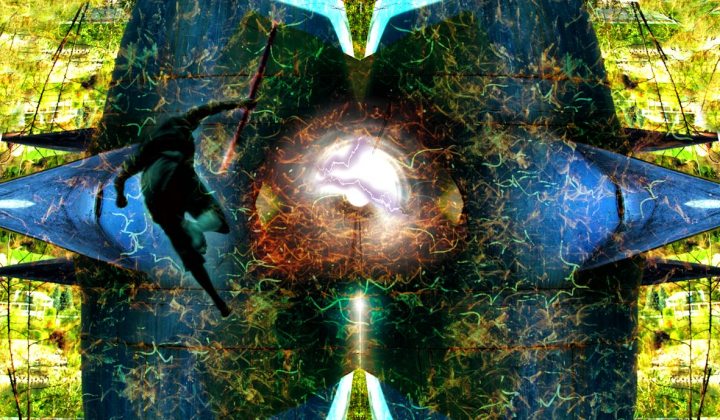
Although humankind undoubtedly benefitted from the Renaissance, Reformation and industrial eras, these social revolutions also extracted enormous costs from indigenous peoples and Earth itself.
September is Heritage Month in South Africa, and on 24 September we will celebrate Heritage Day. This is a good time to remember our cultural heritage as well as contemplate the heritage that we are creating for our children’s children. It is also a good time to consider how it has come to be that we need a day to remember our heritage instead of living its gifts every day.
I was struck by a sense of irony when I read that the 2022 World Heritage Day theme is “Heritage and Climate”. The word heritage makes me think of a time when all people accepted destructive climatic events as earned punishment for our evil deeds – a warning for us to become better people. Our scientific relationship to the increasingly devastating weather events owing to climate change seems at odds with this personally intimate relationship to our world. Or is it?
The decolonisation movement, after the Fees Must Fall and other “fallist” actions, seems to have quietened into the background in recent months. The decolonising project may have been fuelled by a violent reaction to pain and politics, but I believe that its true value will be found in a more considered response from our hearts and minds.
It seems to me that the scientific mindset is at the centre of what gave rise to the devastation of everyone’s heritage and to colonisation. This mindset had a gradual awakening in all peoples, but it is perhaps easiest to identify in the European Renaissance when certain traditions were being challenged, and then later in the Protestant Reformation when people started to read the Bible and decide for themselves what it asked of them.
These acts gave a burst of independence to the human spirit and a freedom from outer traditions and authority. Later, when it expressed itself in the Industrial Revolution, the existing social life of Britain, America and Europe was totally changed. For all that it took away, it gave these countries the technologies, democratic freedoms and economic incentives, as well as the political and military power to expand their sphere of control and influence across the globe. Indigenous cultures were mostly powerless to counter this force and it resulted in alienating most folk from their indigenous relationships to life. From this perspective, the scientific mindset was the ground on which colonisation was built.
As we approach Heritage Day, and especially the 2022 theme, we should keep in mind the personal, social and global consequences of the scientific mindset. We should also give a thought to the elevated status of science and science education in South Africa. The gifts and curses of the scientific mindset are important to explore if we are to form a deeper understanding of how it changes us and our world.
When Copernicus promoted the idea that the Earth is not the centre of our solar system but revolves around the sun, he shifted human consciousness from what seemed natural and obvious when we look up to the sky. By noticing small changes in the speed with which the sun, planets and stars rotate, he, and later Galileo, realised the limited reality of this natural perspective. Evidence overcame traditional ideas, and empowered individuals to form new relationships to their world.
This shift in perspective is a picture of the mental empowerment of the scientific mindset that has now become widespread throughout humanity, giving rise to many further challenges to established traditions.
The power of this thinking, through recognising its potential benefits and dangers, gave rise to the Kantian Era of Enlightenment, democracy, new political, legal and economic empowerment, and human rights. It has now colonised most minds around the world.
Visit Daily Maverick’s home page for more news, analysis and investigations
However, those people and cultures who still feel a semblance of connection to their indigenous ways, or who feel alienated from life because of the scientific mindset, often experience the embodied need for a more intimate and personally meaningful relationship to life. They rightly claim that our mental tendency towards abstraction and objectification has removed us from what grounded us in a reality that was shared and in which we all knew where we belonged.
The escalating effects of global environmental, political and personal instability and devastation all seem to be as a result of this powerfully colonising mindset, hence the irony of the World Heritage Day theme.
The challenge for the decolonising project is to find ways to retain this mindset’s positive influences while limiting its destructive impact. One idea in the decolonisation movement is to return to the old ways, but is it possible to revive indigeneity with our newly liberated and empowered sense of individual freedoms? Can we ignore the new perspectives and gifts gained from this awakened mindset? Can you imagine Copernicus ignoring the conclusions of his findings in favour of the traditional way of seeing our place in the solar system?
If the old ways are not recoverable, then how do we decolonise life to rebuild social intimacy, belonging and meaning?
Just as a scientific mindset brings empowerment to the individual at the expense of the relatively stable social structures into which it awakens, so there must be a mindset that will empower new socially strengthening structures to overcome its destructive impact.
Is this not the challenge that the decolonisation movement wants to bring to our attention by wanting to remove perceived obstructions to an intimacy with ourselves and our world?
The Age of Enlightenment arose because many people’s experiences of reality changed. A human faculty that I am calling the scientific mindset seemed to randomly awaken in individuals around the world and these souls found the scientific, enlightenment and related ideas fitted their experience. It seems that yet another human faculty may be arising that is calling loudly for ideas to which it can attach – that match its need for greater intimacy with ourselves, society and our environment.
Can the social force of decolonisation help us to find it? I suspect that only a worldview that embraces the gifts of traditional religion and indigeneity as well as those of science and enlightenment will fit our current and future needs.
In the South African science classroom, we still promote objective, abstract thinking in a way that does not yet distinguish its dangers from its gifts. In so doing, we continue to perpetuate a mental colonisation that can cause children to feel alienated from the heritage of their parents and community. In the name of education and economic progress, we become potentially guilty of further fragmenting the life experiences of the most vulnerable and trusting in society. Without knowing why, these children will then possibly become alienated from their heritage and give expression to this pain in even more violent ways than the “fallists”.
There is no doubt that our minds are currently colonised by the scientific mindset, but do we have the gifted hearts and minds to give us new ideas around which we can rally? Is there a South African Kant to empower decolonisation to become an important healing impulse for humanity’s future?
And, as our scientific mindset has spread industrialisation and individual freedoms throughout the world, will these new ideas be able to spread practical applications with a renewed meaning and intimacy for life?
Let’s use the knowledge from science to become “better people” and address the challenge of rekindling an intimacy with our world in a way that can also have a healing impact on the climate. DM168
Dr Philip Mirkin has more than 35 years’ experience as a science teacher and school principal. He is currently a science education lecturer in the faculty of education at the University of Pretoria.
This story first appeared in our weekly Daily Maverick 168 newspaper, which is available countrywide for R25.

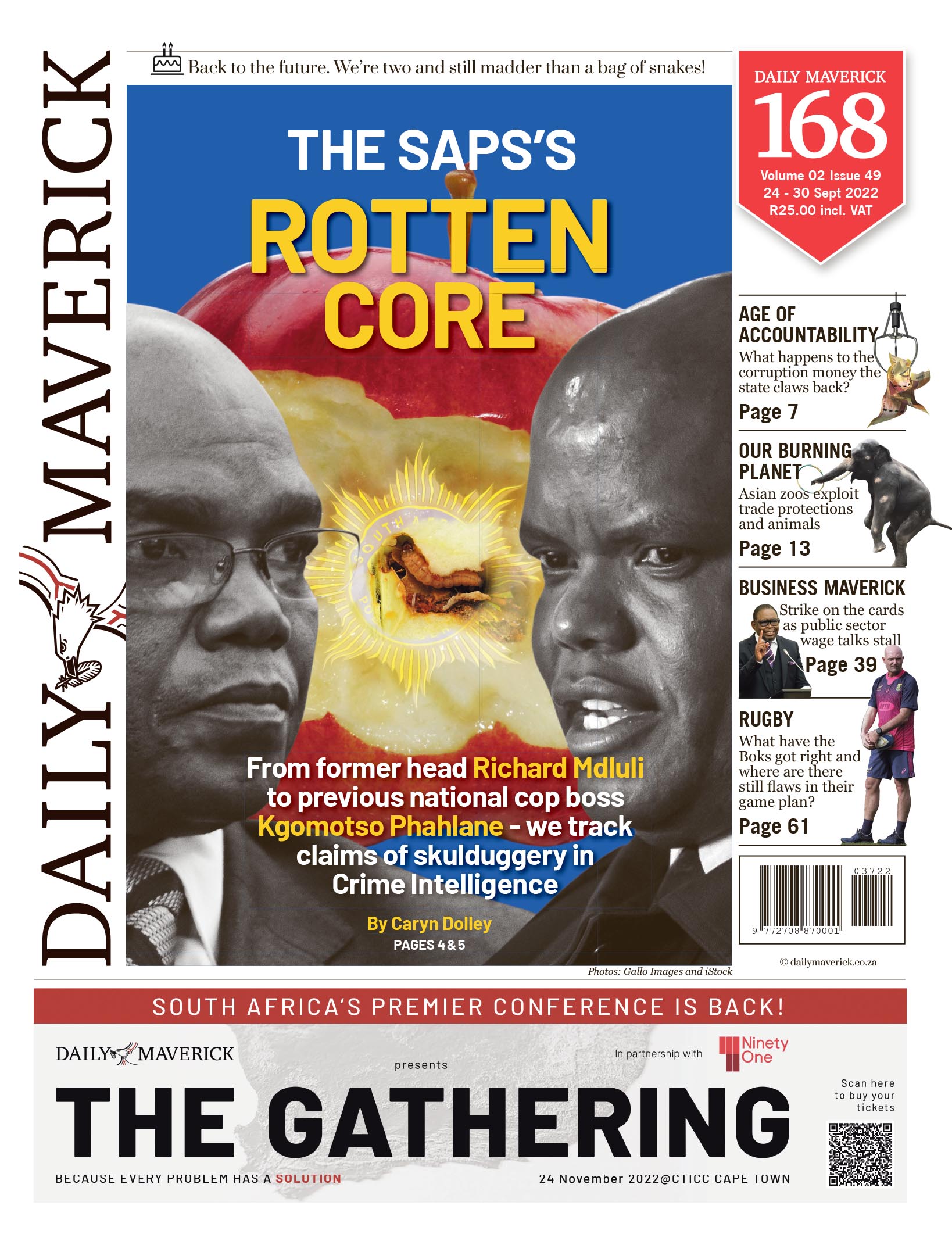





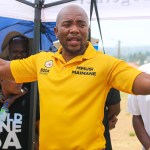
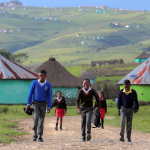

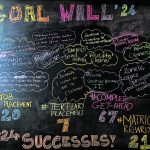









Comments - Please login in order to comment.